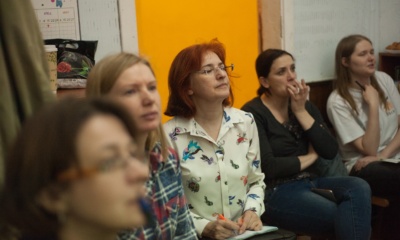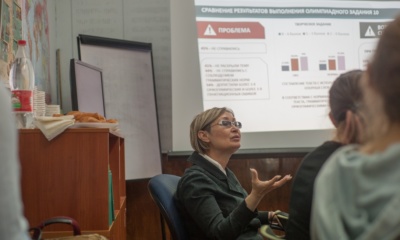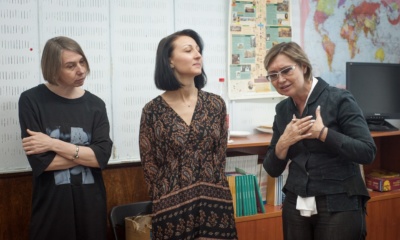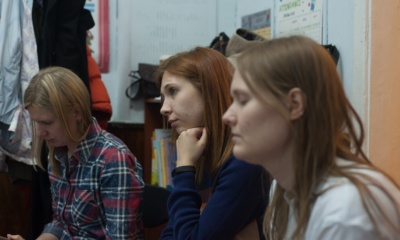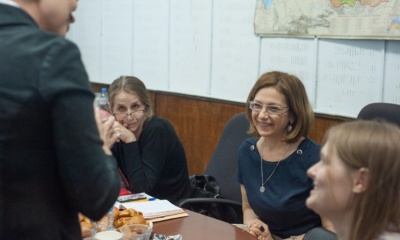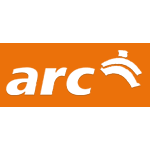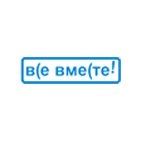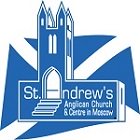Seminar on the correction of written and spoken language errors
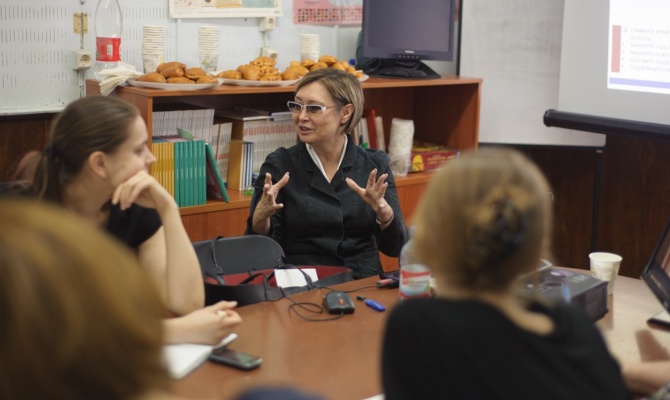
On 21st April, 20 members of the Step Up team took part in a seminar which taught them a number of methods for working with students who are experiencing difficulties in education. The seminar was led by Olga Anatolyevna Ishimova, a well-known speech therapist and methodologist.
During the one-day seminar, Step Up specialist teachers learnt new skills and took on specific advice for working with students with learning difficulties. They learnt about the difficulties these students experience, their possible cognitive defects (that is, problems relating to attention, memory and thought), and the most effective methods to allow students to overcome these difficulties.
Special attention was paid to methods for teaching reading and comprehension. Step Up staff really benefited from the seminar, as their daily work involves working with students to overcome the effects of cognitive defects. Olga Ishimova shared tips for practical teaching methods which can be used in difficult and unconventional learning situations.
The “special” and the “ordinary”
During the seminar, we looked at differences in the primary school syllabus for students with difficulties, namely vision or hearing impairment or learning difficulties. In fact, there were far fewer differences between the syllabus for “ordinary” children and “special” children than we thought.
For instance, students with hearing problems always face the class. If the teacher writes homework on the board and says it aloud at the same time, those with hearing impairments will, of course, be unable to hear the information. However, Olga Anatolyevna noted that “ordinary” students also have difficulty processing this information, as the teacher has their back to them. Furthermore, students with sight problems need important information to be written at the top, the bottom or the middle of the board (the “Z” rule). This principle works for everyone though; a lateral layout hinders all of us.
Methods for working with “special” students can and must be applied to working with “ordinary” students too. These methods are, quite simply, effective, and if all students learn in line with these principles, they will succeed.
The advantages and disadvantages of the Russian education system were also discussed, and the results of Russian students were analysed at an international level. Staff members learned about Olga Anatolyevna’s research into dyslexic students, they discussed the fate of these students and their difficulties.
At the end of the seminar, Olga Anatolyevna made everyone sweat. They had to recite the alphabet at speed, practised expressive reading, chatted, laughed, and generally enjoyed reliving the experience of being a student with such a great teacher.
The seminar took place with the support of the Presidential Grants Foundation. Thank you!
